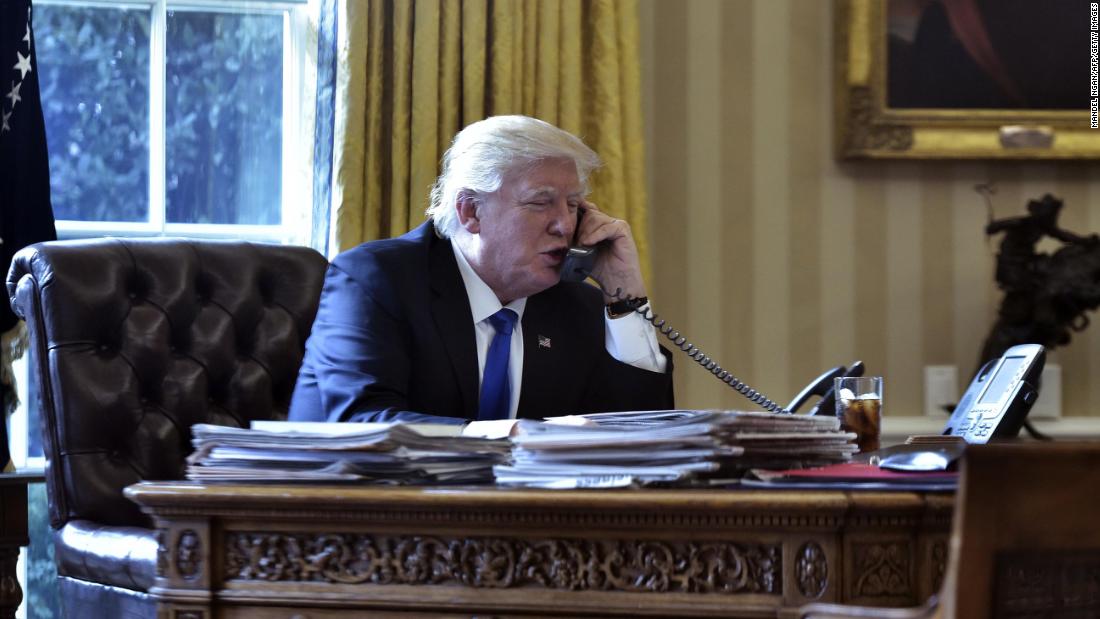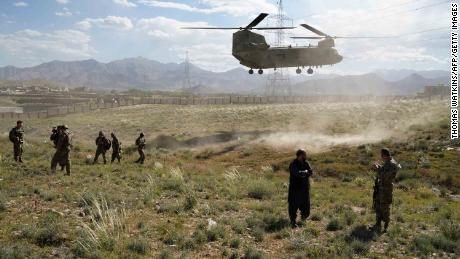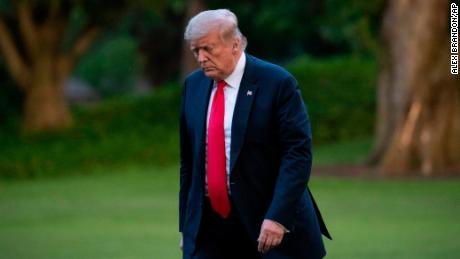Trump officials noticed the President would often blow up at them when his verbal briefing included intelligence on Russia-related threats against the US
According to one former senior intelligence official, the President’s briefers had one simple rule with Trump: never lead with Russia.
Early in his term, Trump’s briefers discovered that when his oral briefing included intelligence related to Russia’s malign activities against the United States, including evidence of its interference in US politics, Trump would often blow up at them, demanding to know why they kept focusing on Russia and often questioning the intelligence itself, multiple former administration officials said.
“The President has created an environment that dissuades, if not prohibits, the mentioning of any intelligence that isn’t favorable to Russia,” a former senior member of Trump’s national security staff told me.
Russia material placed in written briefings that Trump often didn’t read
In response, his briefers — who must make difficult judgment calls every day on which intelligence to highlight to the President — reduced the amount of Russian-related intelligence they included in his oral briefings, instead often placing it only in his written briefing book, a document that is provided daily and sometimes extended to several dozen pages containing the intelligence community’s most important information .
But his briefers discovered over time that he often did not read the briefing book, leaving him unaware of crucial intelligence, including threats related to Russia and other parts of the world.
When asked about CNN’s reporting that Trump is resistant to intelligence warnings about Russia, Director of National Intelligence John Ratcliffe told CNN, “this is totally false” in a statement Tuesday. Ratcliffe took the job in May.
National security adviser Robert O’Brien said Wednesday that the President was not briefed on the Russia bounty intelligence because it had not been corroborated.
“The President was not briefed because at the time of these allegations they were uncorroborated,” O’Brien said. “The President’s career CIA briefer decided not to brief him because it was unverified intelligence … and knowing all the facts I know, I certainly support her decision.”
He called it “ridiculous” that any information would be held back from the President over fears it would upset him. “We brief him on everything he needs to know to keep the country safe. So any thought that we wouldn’t brief him on something because it would anger him, I don’t even know how to respond to that question.”
The White House had not responded to a request for comment on this story as of Wednesday afternoon.
Judging how to use the limited time of their oral briefings with the President was a difficult decision for senior US intelligence officials. One former senior intelligence official who served in the Trump administration explained that the agencies’ job is to present the President with the broadest view of all the threats facing the United States. If the President was obsessed with just one threat, this official continued, he wouldn’t listen to intelligence on other threats, in which case a key line of communication between the intelligence agencies and the commander in chief would be damaged or lost.
They calculated it was best to reserve their limited chances to include such intelligence to the times when the threats were most severe.
“Never casually go in on Russia, decide when it’s differential,” this former senior intelligence official said describing the intelligence community’s approach to his oral briefings, “Save it for when it matters.”
The end result was the President now heard less, not more, about the threat posed by one of the nation’s most dangerous adversaries. Among his national security staff, this approach led to fears that the President was becoming less and less aware of the threat from Russia, even as the intelligence confirming the country’s misbehavior mounted.
“It creates a self-fulfilling prophecy where he hears less and less of what he doesn’t want to hear and therefore starts to believe more and more that the Russians aren’t doing anything bad,” the former senior NSC official said, explaining that when Trump later claimed in public that he hadn’t seen evidence of Russian aggression, he was sometimes telling the truth — but the reason he hadn’t seen it was that they hadn’t shown it to him fearing it would provoke a negative reaction.
Reluctance to hear intelligence
Trump initially reacted to media reports of the bounty by tweeting on Sunday that “there have not been many attacks” on US troops as evidence that the reports may be “phony.”
On Monday, White House press secretary Kayleigh McEnany repeatedly told reporters that the intelligence assessment on Russian bounties did not reach Trump’s desk because there is “no consensus” among US spy agencies and because intelligence must be verified before it is presented to the President — an assessment numerous former senior intelligence officials said was “absurd” and “ridiculous.”
It is “inconceivable,” they said, that the President would not have been briefed on such critical intelligence that Russian actions were potentially putting US soldiers in harm’s way.
Asked whether there needs to be consensus within the intelligence community before present information to the President, former House Intelligence Committee Chairman Mike Rogers told Jake Tapper on CNN’s “The Lead,” “no, not really.”
Referring to McEnany, he added, “by the way, when she says there is dissent across the intelligence community, this is more than some errant piece of intelligence that might come in or get thrown over the transom, either by an ally or some other collection, where there just wasn’t enough to it. Clearly there was enough, there was lots of discussion, and oftentimes even where there is an affirmative agreement on what we think the intelligence says, there will be dissenting opinion and that dissenting opinion is normally heard, because you need that information to make a good decision.”
CNN’s Nicole Gaouette and Jason Hoffman contributed to this report.
![]()






